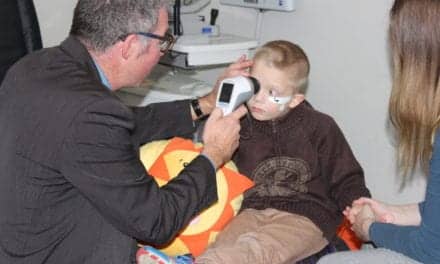Xcell Biosciences Inc, San Francisco, has extended its collaborative work with the University of California, San Francisco (UCSF), to include working with three principal investigators on pilot studies using Xcell’s Avatar cell culture system and proprietary analytics platform. The work will determine whether large-scale RNA profiling from peripheral blood and other patient-derived sample sources cultured in the Avatar system and correlated to clinical outcomes can predict a patient’s response to first- or second-line treatments in bladder, kidney, and prostate cancers.
Charles J. Ryan, MD, professor of clinical medicine and urology and the clinical program leader for genitourinary medical oncology at the UCSF Helen Diller Family Comprehensive Cancer Center, has been collaborating with Xcell for several years on a number of projects. The latest involves studying the relationship between genomic variation in prostate cancer patient samples and response to treatment. The study includes samples from patients who have developed resistance to standard-of-care therapies.
“We are particularly enthusiastic about the opportunity to use the Avatar system to compare results from liquid biopsies to actual tissue biopsies,” says Ryan. “We also are optimistic about the ability to use the system to look at broad-scale genomic alterations in cancer patients without the necessity for looking at circulating tumor cells, cell-free DNA, or tissue biopsies. Xcell’s system offers the opportunity to look at different types of analysis all with one blood draw—for example, potential relationships between immunology, androgen receptors, and DNA repair in prostate cancer.”
Terry Friedlander, MD, associate clinical professor of medicine at UCSF, is collaborating on studies involving bladder and prostate cancer. “We are excited about this collaboration and the potential ability to use the Avatar system as an immunologic springboard,” Friedlander says. “Predicting treatment response is a huge unanswered question in oncology in general. If the Avatar system can keep the cells in the same state that they were in the body, we may get a more accurate read on the activation status of the immune system and determine markers that might help predict response to treatment.”
UCSF medical oncologist Won Kim, MD, who is leading a study on kidney cancer, adds, “Kidney cancer is a disease where we have a real shortage of predictive and prognostic biomarkers. For this pilot study, we’re hopeful that we will show that the data generated from Xcell’s platform will help us identify which patients with renal cell cancer are more likely to respond to tyrosine kinase inhibitors or immunotherapy. We all want these feasibility studies to succeed because there are so many cancers where tissue is just not easy to access.”
The Avatar system, including a benchtop and stackable instrument and consumables for a number of applications, allows for complete control of key physiological conditions found in the microenvironments of cells, including settings for CO2, oxygen, pressure, and temperature levels. In addition to enabling culture of difficult samples such as tumor biopsies and primary samples, the system overcomes limitations of traditional cell culture to generate results that exhibit the phenotypic, genomic, and proteomic characteristics of the native sample.
“We are delighted to continue our collaborative work with UCSF, a leading center for cancer clinical research, on these new studies,” says James Lim, PhD, chief scientific officer at Xcell Biosciences. “We believe our RNA-based whole transcriptome approach to liquid biopsy will enable us to generate unique gene expression signatures that will predict a patient’s response to a given therapeutic. Our goal is to ultimately demonstrate evidence that the Avatar system’s physiologically relevant microenvironments can provide unparalleled and previously unavailable diagnostic insights enabling oncologists to treat patients more effectively and also at the right time.”
For more information, visit Xcell Biosciences.









